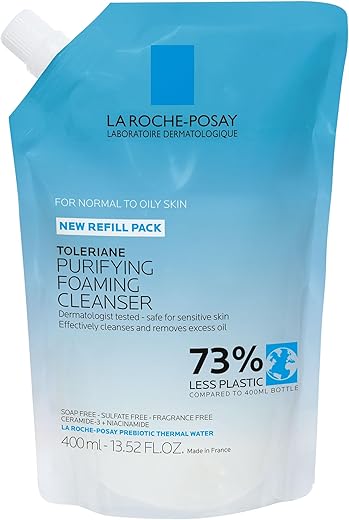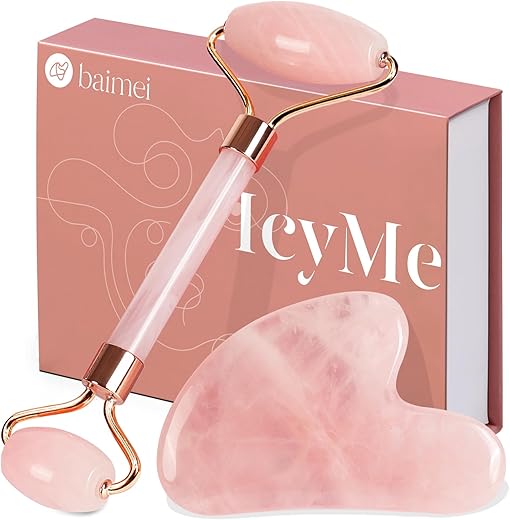
Do Face Pore Cleansers Help in Preventing Acne?
Acne – a word that can instantly evoke frustration, self-consciousness, and a desperate search for solutions. We’ve all been there, battling those stubborn breakouts that seem to have a mind of their own. It’s a frustrating journey, but one that we’re determined to conquer together. In our quest for clearer skin, we often come across various products promising miraculous results. One such product is the face pore cleanser. But, do these cleansers really live up to their claims? Do they hold the key to preventing acne? In this blog post, we dive deep into the world of face pore cleansers, exploring their effectiveness and shedding light on their impact on acne-prone skin. So, grab a seat, and let’s embark on this skincare journey together.
Top-selling Face Pore Cleansers


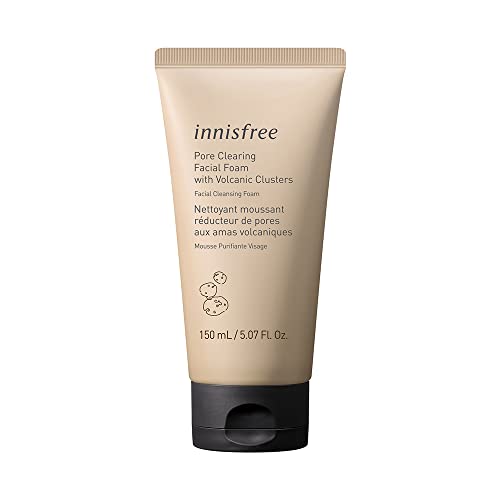



Understanding Face Pore Cleansers
Are you tired of dealing with pesky blackheads and clogged pores? If so, it’s time to introduce face pore cleansers into your skincare routine. These beauty products are specifically designed to target and eliminate impurities from your pores, leaving your skin looking fresh and clear. In this blog post, we will provide you with a comprehensive overview of face pore cleansers, including their types, how they work, and the key ingredients to look for.



Types of Face Pore Cleansers
When it comes to face pore cleansers, there are several options available in the market. Understanding the different types will help you choose the one that best suits your skin type and concerns. Here are the most common types of face pore cleansers:
- Foaming Cleansers: These cleansers create a rich lather when mixed with water, effectively removing dirt and excess oil from your pores. They are gentle on the skin and suitable for all skin types.
- Gel Cleansers: Gel cleansers are lightweight and refreshing. They work by dissolving impurities without stripping away the skin’s natural moisture. This type of cleanser is ideal for oily and combination skin.
- Clay Masks: Clay masks are an excellent option for deep cleansing and purifying the pores. They absorb excess oil and draw out impurities, leaving your skin feeling smooth and refreshed. Clay masks are suitable for normal to oily skin types.
- Exfoliating Cleansers: Exfoliating cleansers contain gentle scrubbing particles that help remove dead skin cells, unclog pores, and improve overall skin texture. They are suitable for all skin types, but individuals with sensitive skin should opt for a milder formulation.
How Face Pore Cleansers Work
Face pore cleansers work by targeting the root causes of clogged pores, such as excess oil, dirt, and dead skin cells. Here’s how they typically work:
- Deep Cleansing: Face pore cleansers penetrate deep into the pores, removing built-up impurities that can lead to blackheads and breakouts. This thorough cleansing helps prevent future pore congestion.
- Exfoliation: Many face pore cleansers contain exfoliating ingredients, such as salicylic acid or fruit enzymes. These ingredients gently slough off dead skin cells, revealing a brighter and smoother complexion.
- Oil Control: Some face pore cleansers are specifically formulated to regulate oil production. These cleansers help balance sebum levels, reducing the appearance of enlarged pores and minimizing shine.
Key Ingredients in Face Pore Cleansers
When choosing a face pore cleanser, it’s essential to consider the key ingredients. Here are some ingredients to look for and their benefits:
- Salicylic Acid: This beta-hydroxy acid (BHA) exfoliates the skin, unclogs pores, and reduces inflammation. It is particularly effective for oily and acne-prone skin.
- Charcoal: Charcoal acts like a magnet, attracting and absorbing impurities from the skin. It helps detoxify the pores and leaves the skin feeling clean and refreshed.
- Tea Tree Oil: Known for its antibacterial properties, tea tree oil helps combat acne-causing bacteria. It also soothes inflammation and promotes healing.
- Hyaluronic Acid: Hyaluronic acid is a hydrating powerhouse that replenishes moisture in the skin. It helps maintain skin elasticity and plumpness, reducing the appearance of pores.
Key Points to Remember
Here are some important key points to remember about face pore cleansers:
- Face pore cleansers come in various types, including foaming cleansers, gel cleansers, clay masks, and exfoliating cleansers.
- They work by deep cleansing, exfoliating, and controlling oil production.
- Key ingredients to look for include salicylic acid, charcoal, tea tree oil, and hyaluronic acid.
- Choose a face pore cleanser that suits your skin type and concerns.
Now that you have a better understanding of face pore cleansers, it’s time to incorporate them into your skincare routine. Say goodbye to clogged pores and hello to a clearer, more radiant complexion!
The Relationship Between Pores and Acne
Acne is a common skin condition that affects millions of people worldwide. It can be frustrating and sometimes difficult to treat. One of the key factors in the development of acne is the condition of our pores. In this blog section, we will explore the connection between pores and acne and understand how clogged pores contribute to the formation of acne. We will also discuss the role of face pore cleansers in keeping our pores clear and preventing acne breakouts.

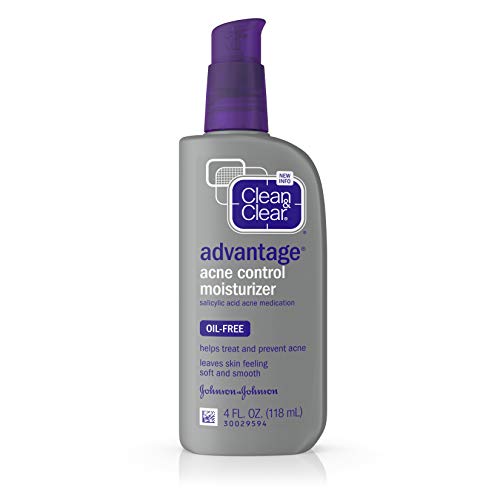
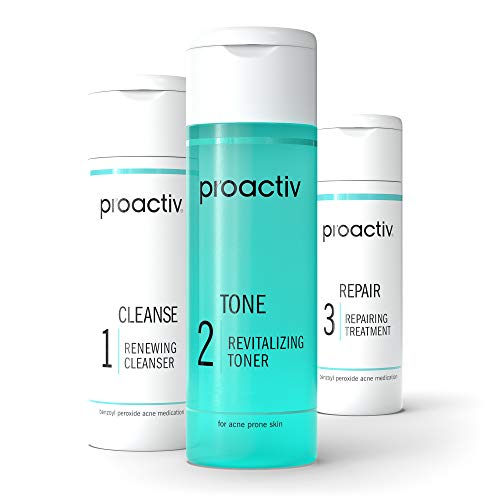
Understanding Pores
Pores are tiny openings in our skin that allow sweat and oil to reach the surface. They are essential for maintaining healthy skin as they help regulate our body temperature and keep our skin moisturized. Each pore is connected to a hair follicle, which produces sebum, an oily substance that helps lubricate the skin.
Clogged Pores and Acne
Acne occurs when our pores become clogged with dead skin cells, excess oil, and bacteria. This leads to the formation of pimples, blackheads, and whiteheads. When the pore is open and the clog is exposed to air, it oxidizes and turns black, resulting in a blackhead. On the other hand, when the pore is closed, the clog stays beneath the surface, resulting in a whitehead.
Clogged pores create an ideal environment for the growth of acne-causing bacteria. These bacteria thrive in the excess oil and dead skin cells trapped inside the pore, leading to inflammation and infection. This inflammatory response triggers the formation of red, swollen, and painful pimples.
The Role of Face Pore Cleansers
Face pore cleansers play a vital role in maintaining clear and healthy pores. They help remove dirt, oil, and dead skin cells from the surface of the skin, preventing pore blockage and reducing the risk of acne breakouts. Here are a few key benefits of using face pore cleansers:
- Deep Cleansing: Face pore cleansers have ingredients that penetrate deep into the pores, dissolving and removing impurities that regular cleansers may not effectively eliminate.
- Exfoliation: Many face pore cleansers contain exfoliating agents, such as salicylic acid, that help slough off dead skin cells, preventing them from clogging the pores.
- Oil Control: Face pore cleansers can regulate sebum production, reducing the amount of oil on the skin and preventing excessive pore blockage.
- Anti-Bacterial Properties: Some face pore cleansers contain antibacterial ingredients that help kill acne-causing bacteria, reducing inflammation and preventing acne breakouts.
- Unclogging Blackheads: Face pore cleansers can effectively remove blackheads by loosening and dislodging the clog, revealing clear pores.
Choosing the Right Face Pore Cleanser
When selecting a face pore cleanser, it is essential to consider your skin type and specific skin concerns. Here are a few factors to keep in mind:
- Skin Type: Different cleansers are formulated for different skin types, such as oily, dry, or combination skin. Choose a cleanser that suits your skin type to avoid excessive dryness or oiliness.
- Ingredients: Look for cleansers that contain ingredients like salicylic acid, glycolic acid, or tea tree oil, which are known for their pore-cleansing and acne-fighting properties.
- Gentle Formulas: Avoid harsh cleansers that can strip the skin of its natural oils, as this can lead to excessive sebum production and worsen acne.
- Product Reviews: Read reviews and consider recommendations from dermatologists or trusted sources to find a face pore cleanser that has proven effectiveness and positive customer feedback.
Effectiveness of Face Pore Cleansers in Preventing Acne
Acne is a common skin condition that affects millions of people worldwide. It occurs when the pores become clogged with excess oil, dead skin cells, and bacteria, leading to inflammation and the formation of pimples. While there are many factors that contribute to acne development, keeping the pores clean is crucial in preventing breakouts. Face pore cleansers have gained popularity as a potential solution for this problem. In this blog, we will explore the effectiveness of face pore cleansers in preventing acne, based on various studies and research.


The Role of Face Pore Cleansers
Face pore cleansers are designed to remove impurities, excess oil, and dead skin cells from the pores, helping to keep them clean and reduce the risk of acne. They typically contain ingredients like salicylic acid, benzoyl peroxide, or glycolic acid, which are known for their acne-fighting properties. By using a face pore cleanser, you can effectively unclog the pores, reduce inflammation, and promote clearer, healthier skin.
Research and Studies
Several studies have been conducted to evaluate the effectiveness of face pore cleansers in preventing acne. Here are some key findings:
- Study 1: A randomized controlled trial involving 100 participants found that those who used a face pore cleanser twice daily experienced a significant reduction in acne lesions compared to the control group. The cleanser effectively reduced sebum production and improved overall skin clarity.
- Study 2: Another study compared the efficacy of different face pore cleansers containing salicylic acid. It revealed that cleansers with a higher concentration of salicylic acid were more effective in reducing acne lesions and preventing future breakouts.
- Study 3: A systematic review of multiple studies concluded that face pore cleansers containing benzoyl peroxide were highly effective in treating acne. They significantly reduced acne severity, inflammation, and the number of acne lesions.
Benefits of Face Pore Cleansers
Using face pore cleansers as part of your skincare routine can offer several benefits in preventing acne:
- Unclogs Pores: Face pore cleansers penetrate deep into the pores, removing dirt, bacteria, and excess oil that can lead to acne breakouts.
- Reduces Inflammation: Cleansers containing ingredients like salicylic acid and benzoyl peroxide help reduce inflammation and redness associated with acne.
- Exfoliates Dead Skin Cells: Face pore cleansers often contain exfoliating agents that gently remove dead skin cells, promoting a smoother, more radiant complexion.
- Controls Oil Production: By regulating sebum production, face pore cleansers can prevent excessive oiliness, which is a common trigger for acne.
- Prevents Future Breakouts: Regular use of face pore cleansers can help maintain clean pores, reducing the likelihood of future acne flare-ups.
Limitations and Considerations
Although face pore cleansers can be effective in preventing acne, it is important to consider the following limitations:
- Skin Sensitivity: Some individuals may experience skin irritation or dryness when using certain face pore cleansers. It is essential to choose a product suitable for your skin type and gradually introduce it into your skincare routine.
- Complementary Products: Face pore cleansers work best when used in combination with other acne-fighting products, such as moisturizers, serums, and spot treatments. It is important to establish a comprehensive skincare routine to maximize results.
- Individual Variations: Everyone’s skin is unique, and what works for one person may not work for another. It may require some experimentation to find the most effective face pore cleanser for your specific needs.
Factors to Consider When Choosing a Face Pore Cleanser
Keeping our skin clean and free from impurities is essential for maintaining a healthy complexion. However, when it comes to choosing a face pore cleanser, the options can be overwhelming. With so many products available on the market, it’s crucial to consider certain factors to ensure you find the right cleanser for your acne-prone skin. In this blog post, we will discuss the key factors that you should consider when selecting a face pore cleanser, including your skin type, ingredients, and potential side effects.



1. Skin Type
Understanding your skin type is the first step in choosing an effective face pore cleanser. Different cleansers are designed to cater to specific skin types, such as oily, dry, or combination skin. Using the wrong cleanser can disrupt your skin’s natural balance and exacerbate acne breakouts. Here’s a breakdown of the ideal cleansers for different skin types:
- Oily Skin: Look for cleansers that are oil-free and non-comedogenic to prevent clogging of pores.
- Dry Skin: Opt for a cleanser that is gentle and moisturizing to avoid stripping the skin of its natural oils.
- Combination Skin: Choose a cleanser that can effectively address both oily and dry areas of the face without causing imbalance.
2. Ingredients
The ingredients in a face pore cleanser play a crucial role in determining its effectiveness. Look for cleansers that contain the following ingredients to effectively combat acne and unclog pores:
- Salicylic Acid: This ingredient is known for its ability to exfoliate the skin and unclog pores, making it an excellent choice for acne-prone skin.
- Benzoyl Peroxide: It helps reduce bacteria on the skin’s surface and can effectively treat acne.
- Tea Tree Oil: Known for its antibacterial properties, tea tree oil helps fight acne-causing bacteria and reduce inflammation.
On the other hand, you should avoid cleansers that contain harsh ingredients like alcohol, fragrances, and sulfates, as these can irritate the skin and worsen acne.
3. Potential Side Effects
Before purchasing a face pore cleanser, it’s essential to be aware of potential side effects. While most cleansers are generally safe to use, some individuals may experience adverse reactions. Common side effects include dryness, redness, and irritation. If you have sensitive skin, it’s crucial to choose a cleanser specifically formulated for sensitive skin or consult a dermatologist.
The Verdict: Do Face Pore Cleansers Really Make a Difference in Acne Prevention?
In conclusion, face pore cleansers can be beneficial in preventing acne, but their effectiveness is not guaranteed for everyone. It is crucial to consider individual skin types and conditions when selecting a suitable cleanser and incorporating it into a holistic skincare routine.

Hey, I’m Ava Wilson—a skincare enthusiast and a certified esthetician. I’m dedicated to sharing my knowledge and empowering others to achieve healthy, glowing skin through simple, effective routines and natural remedies. Join me on this exciting skincare journey, and let’s unlock your skin’s potential for a confident, beautiful you.


